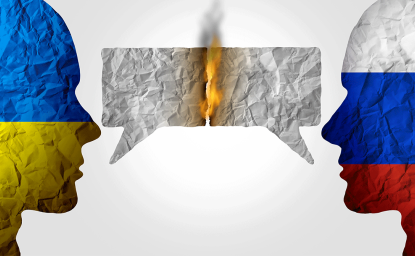The Latest
Iran's "unprecedented" attack on Israel marks a significant escalation of the tensions between the two countries. Wilson Center Distinguished Fellow Robin Wright provides insights on the significance of Iran’s attack. She talks about the ongoing shadow war between Israel and Iran’s proxies, the role the US has played in defending Israel, and the challenges of containing the spillover effect of this latest escalation.
Video Transcript
-
World Leaders Urge Restraint as Israeli War Cabinet Considers Response
Guest


Middle East Program
The Wilson Center’s Middle East Program serves as a crucial resource for the policymaking community and beyond, providing analyses and research that helps inform US foreign policymaking, stimulates public debate, and expands knowledge about issues in the wider Middle East and North Africa (MENA) region. Read more

Explore More
Browse Insights & Analysis
The OSCE is a Good Value for America








